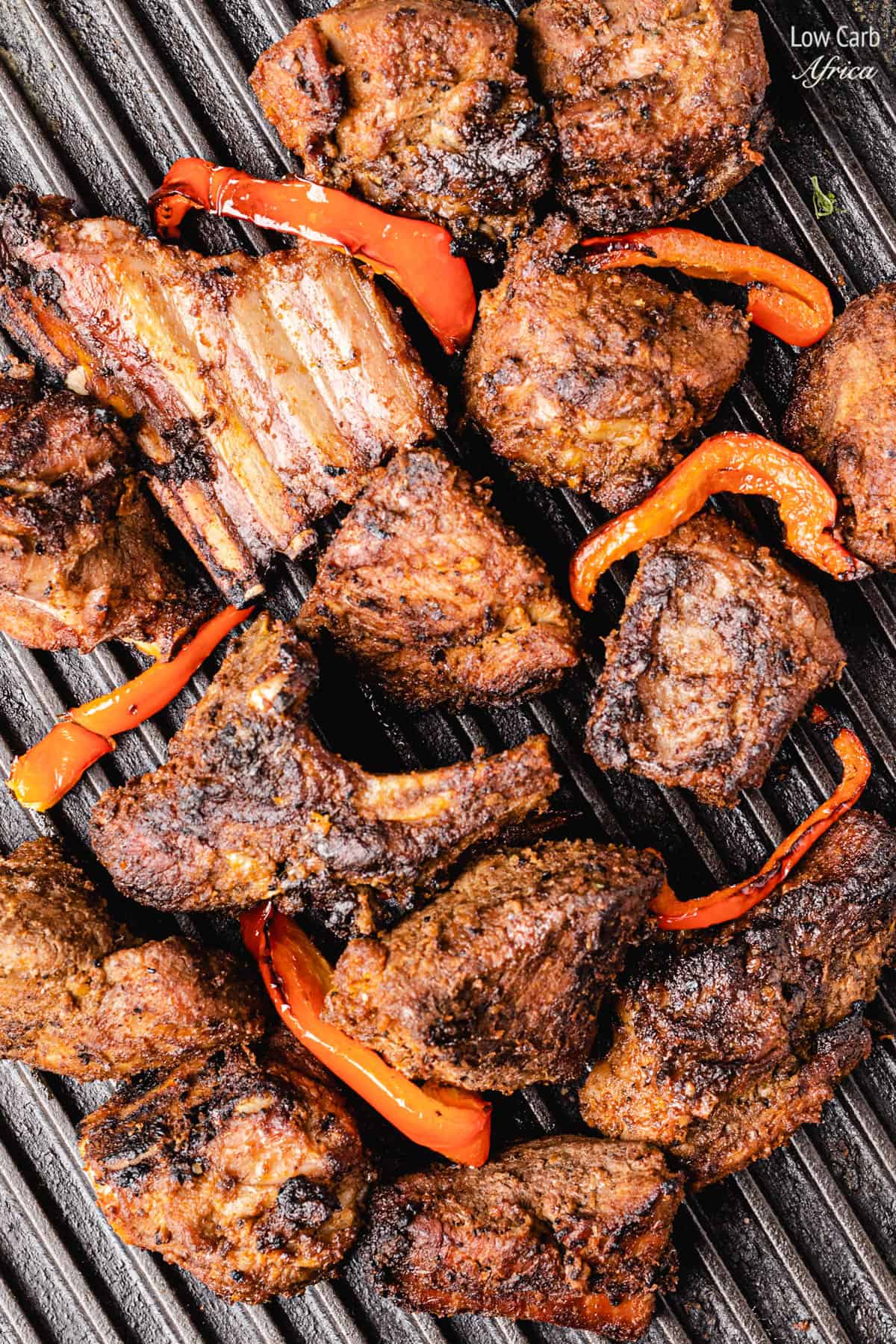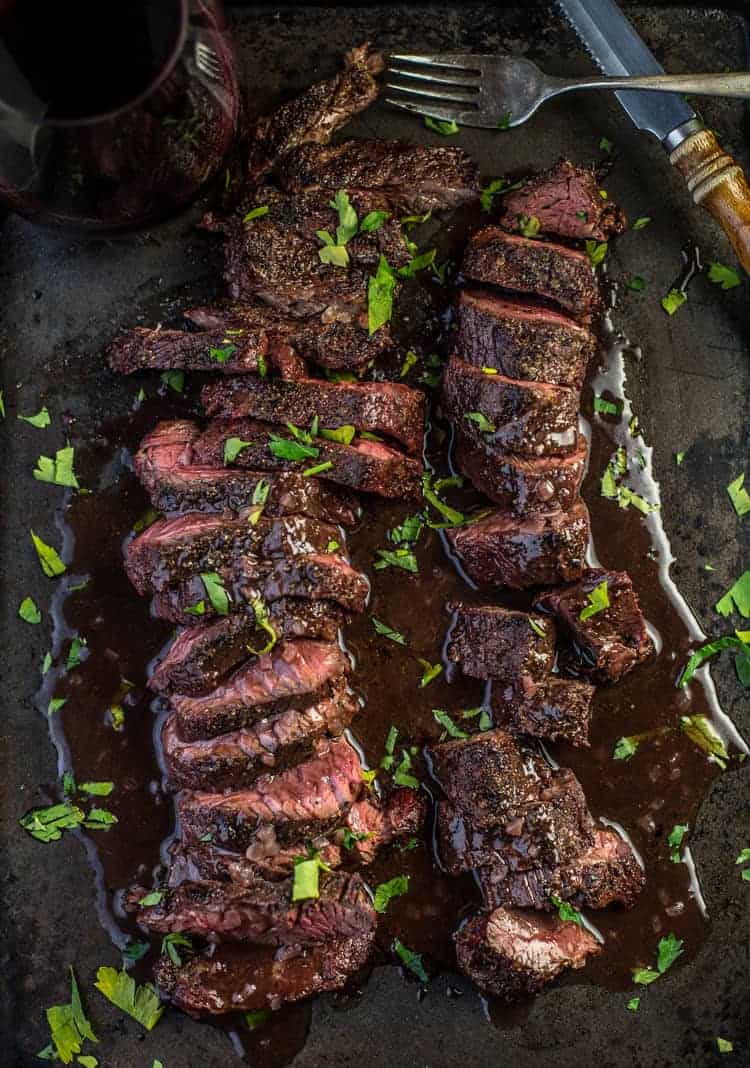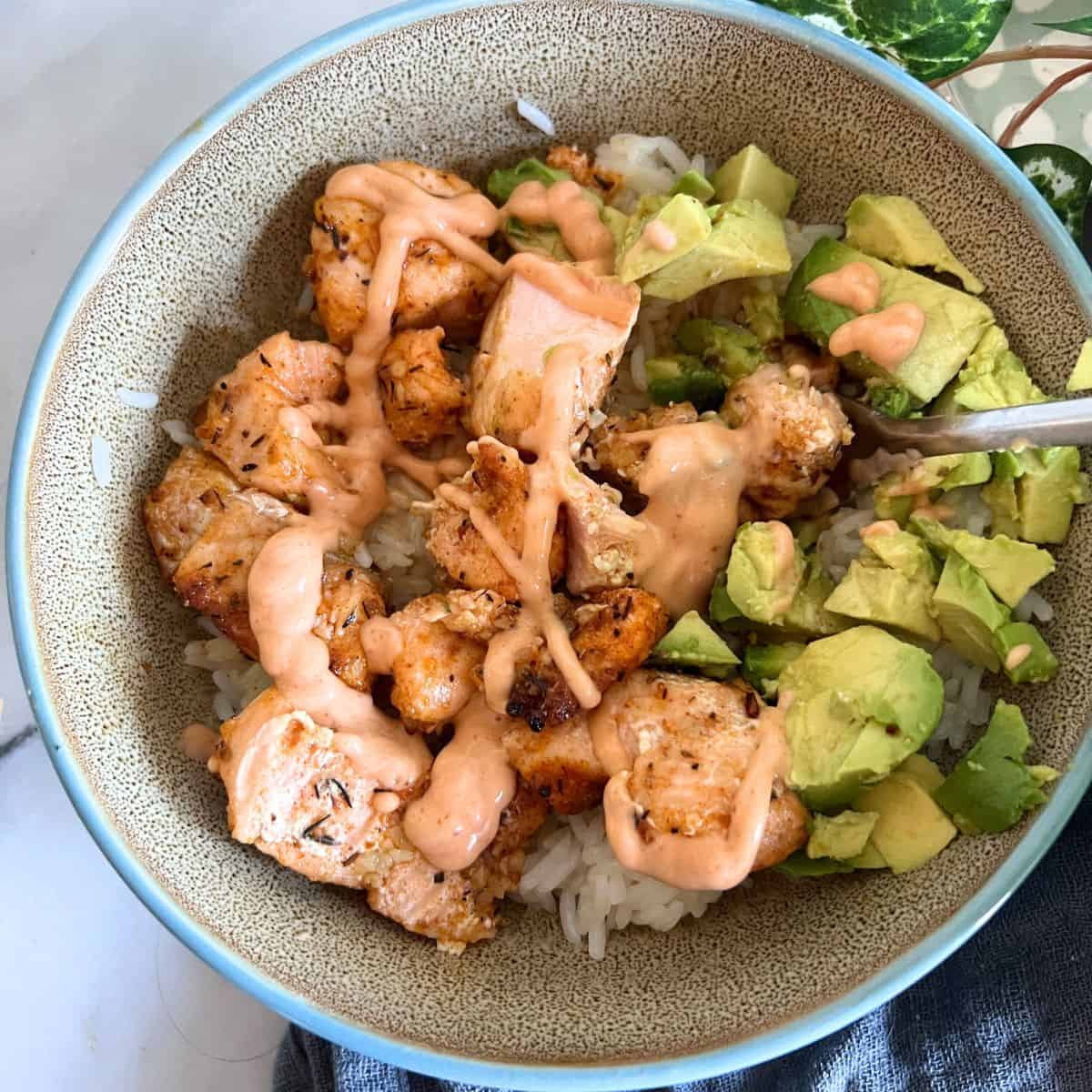Salmon has never been a staple fish in our household. It's more pricey than other fish in the market and has a very distinct flavor that I believe is an acquired taste. Somehow, salmon intimidates me, that's why I rarely...
Salmon has never been a staple fish in our household. It's more pricey than other fish in the market and has a very distinct flavor that I believe is an acquired taste. Somehow, salmon intimidates me, that's why I rarely cook with it. I personally enjoy salmon dishes from restaurants, and buy smoked salmon as canape from time to time. Recently, I received a batch of frozen wild-caught Alaskan salmon to try. This is a new line from Seaking brand. I regularly buy Seaking's marinated bangus belly so I welcomed these new salmon packs and got excited to come up with something in the kitchen.
Salmon is one of the most nutrient-dense fish - high in omega-3 fatty acids, protein, vitamins and minerals. When I hear "salmon", I think "Alaska". Sikat sila dun eh, and natural wild-caught Alaskan salmon, not farmed, is known to be the best. Thankfully, Seaking has made them more accessible for us with these ready to cook, special cuts of salmon in frozen packs. They are beautifully cut, smells clean and fresh. More convenient na to cook salmon!
Before I tried cooking these Alaskan salmon pieces, I tried to learn about the different varieties or species of salmon. I am only familiar kasi with pink salmon, which has a mild flavor, softer and more flaky. Keta salmon, also known as chum salmon, is not as popular as the pink species. Keta is pale in color, less oily, but moist and firm. I've read that this variety is ideal for grilling or roasting, and great with sweet or spicy sauces.
Before I tried cooking these Alaskan salmon pieces, I tried to learn about the different varieties or species of salmon. I am only familiar kasi with pink salmon, which has a mild flavor, softer and more flaky. Keta salmon, also known as chum salmon, is not as popular as the pink species. Keta is pale in color, less oily, but moist and firm. I've read that this variety is ideal for grilling or roasting, and great with sweet or spicy sauces.

I got the idea of making grilled salmon, or Japanese yakisake, from this photo of Seaking skewered salmon chunks on their packaging.
Here's my second, more successful attempt at cooking salmon a'la yakitori. Yakitori is Japanese grilled chicken with sweet-salty sauce, but the term can refer to other meats or vegetables. This is what we are used to ordering in restos. For this recipe, I am using salmon pieces = Yakisake.
Be sure your keta salmon chunks are completely thawed before you skewer.

GRILLED KETA SALMON (YAKISAKE)
1 pack SEAKING Wild Alaskan Keta Salmon Chunks
8 thin bamboo sticks
Garnish:
onion, bell pepper, asparagus, leeks, or other vegetables you prefer
Marinade / Sauce:
1 teaspoon minced ginger
4 tablespoons Kikkoman Premium Soy Sauce
2 tablespoons mirin (Japanese sweet rice wine)
2 tablespoons honey
ground pepper

I want quick and easy cooking, so I simply marinated the salmon chunks in half of the sauce for 15 minutes. Set aside half of the sauce for basting.


Serve immediately. Drizzle more sauce over the skewers and enjoy with steamed or fried rice.
It only took me about 30 minutes to prepare, cook, and serve these tasty yakisake for dinner, and I am happy to report that it's family-approved! :D
For short-cuts, you can skip the bamboo sticks and simply pan grill or pan fry the Keta Salmon Chunks with the veggies, a'la teppanyaki. Then drizzle with more sauce. I've used bottled teriyaki sauce the first time I tried to cook this, and it worked just as well.

I'd love to know your thoughts on this post. If you enjoyed this, feel free to share it!
Get instant updates:
Follow @mymomfriday on Instagram
My Mom-Friday on Facebook
Subscribe Via Email.
Thank you and do visit again!
(Comments with links will automatically be flagged by Disqus.)


















